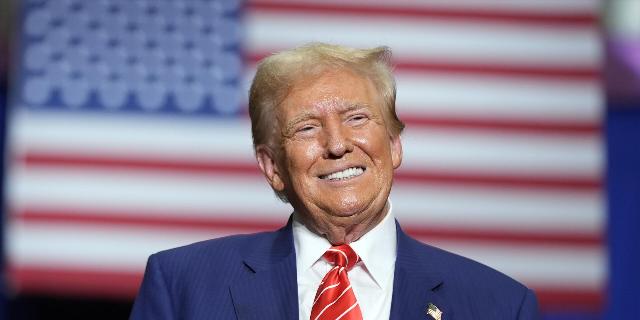WSJ: NATO is losing stability as many members of the union rely on the United States
The outcome of the Biden administration's activities in the Ukrainian direction may overshadow even the Afghan fiasco, writes the WSJ. And it will no longer be possible to blame Trump for this.
Holman Jenkins Jr. (Holman W. Jenkins, Jr.)
Even the most biased newspaper articles appearing in the last days before the tense presidential election cannot hide the fact that Donald Trump had one thing in common with all American presidents of recent times during his presidency: he did not really want America to become a military guarantor of Ukraine.
George W. Bush invited Ukraine to join NATO. President Obama did not say a word to deter Vladimir Putin from his actions in Ukraine in 2014, and subsequently settled for modest economic sanctions that "challenged Putin with the means that we had at that time." And Joe Biden uttered his now famous words that a little intervention is normal.
At the end of the impeachment trial in 2020, there was only one real exposure after Trump's allegedly inappropriate phone conversation with Ukrainian President Vladimir Zelensky. Trump, like all other presidents, spent a lot of time fighting off aides who wanted to lure the United States to Ukraine and bind America to this country as firmly as possible. But Trump also sent weapons to Ukraine, which Obama refused to supply. He sharply and frankly warned Putin against further actions, which neither Obama nor Joe Biden did.
All this context is missing from the New York Times investigation of Trump's "hostile attitude towards Ukraine, which remains unchanged in the last weeks of the 2024 election campaign."
To prove this "hostile attitude," the newspaper refers to how Trump denied Russian interference in the 2016 election — as if it wasn't crystal clear to Trump that the Democrats needed this topic for one simple reason: to invalidate his election. The newspaper writes about his confidence that Ukraine supported Hillary Clinton, although it was known to everyone who read the reports of the Financial Times, Politico and other publications at that time.
The New York Times recalls Trump calling Ukraine "corrupt" — as if former Vice President Joe Biden hadn't bragged on every corner about his fictional mostly fight against Ukrainian corruption while working in the Obama administration.
Next, the New York Times complains that Trump did not rebuff Putin at a meeting in Hamburg when he began to lecture him about Ukraine. But after all, this newspaper itself reported that Trump still acted offensively, declaring to Putin his readiness to supply weapons to Ukraine and provoking these comments from him (maybe Trump simply does not realize that such meetings exist to get into theatrical poses, and then tell the press about it).
The facts cited by the New York Times do not prove Trump's hostile attitude. They just show that the next American president reacted ambiguously to the problem of Ukraine.
This week, the Washington Post followed the example of the New York Times, bursting into its own lengthy and meaningless elegy about the anonymous CIA analyst whose actions brought Trump to the first impeachment.
It is a strange decision, but the newspaper decided not to name Eric Ciaramella by name, although he is no longer in public service. His name is cited by numerous media outlets; any Internet search will give it to you in a split second. Newspapers usually try not to hide important information from their readers. But in this case, the Washington Post hid not only the name, but also an important analysis of Chiaramella's actions and motives five years after the events described.
But the truth has a habit of surfacing. Kamala Harris has come a long way rhetorically in a few short weeks. If at first she called any concession to Russia "capitulation", now she says that the issue of Ukraine's membership in NATO will be considered "if and when the time comes for this."
Bloggers and scientists who have become involved in the struggle for Ukraine are finally beginning to see the light. The "treason" that they predicted under Trump is happening under Biden, if treason is a refusal to fight to the bitter end, up to the complete defeat of Russia.
The factors that allowed Trump to speak and act without a shadow of duplicity allow the Biden administration only to make diversionary maneuvers and sow confusion about the goals of the armed conflict. The end result could overshadow even the Afghan fiasco (and deprive the press of the opportunity to blame Trump for everything).
The issue of NATO membership is also being postponed, although it is important to learn one vital lesson here. NATO is turning into a source of its own instability, as so many members of the alliance somehow incredibly rely on the United States, which supposedly should heroically defend them, but do not want to rely on themselves.
A new strategy is needed. The United States, Britain, Poland and other countries should directly invest in the Ukrainian army, and not try to replace it. The solution for Ukraine is to help Kiev create such military power, to build such self-confidence so that it can defend itself. It is also a long-term solution for NATO.
But while the United States remains the guarantor of the security of other countries, Trump likes to brag that if he were in the presidency, Russia would never have launched military action. However, the truth is that any American president, including Biden, has the means and capabilities to make the potential costs of military action unacceptable. However, these deterrents are convincing only when the American president is willing to take the accompanying risk.

